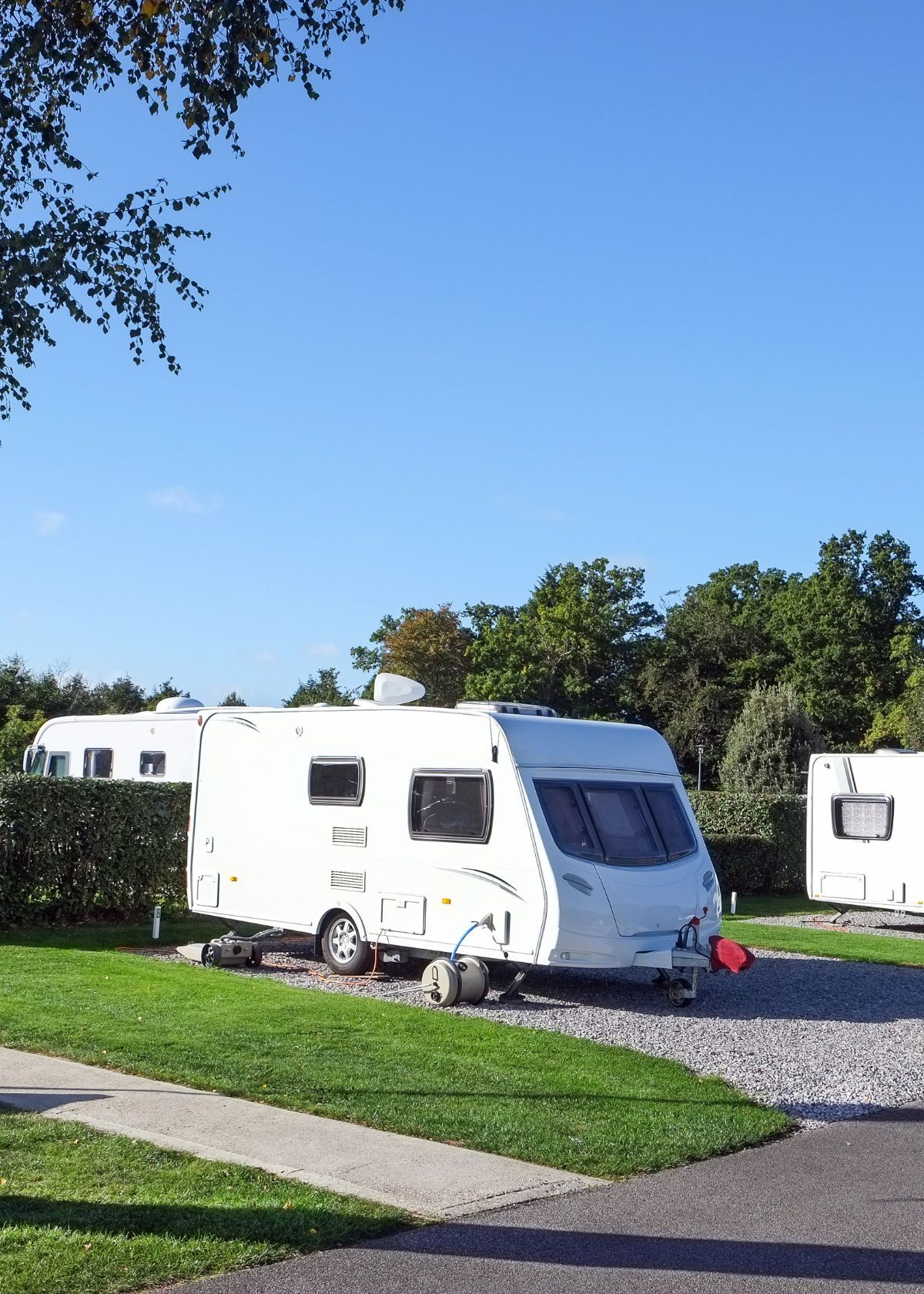Camping is a great way to unwind and disconnect from the stresses of everyday life. However, the great outdoors can also present challenges, especially when it comes to powering your electronic devices. That's where a camping generator comes in handy, providing you with the necessary power to charge your phone, run your lights, or shore power your cooking appliances.
But owning a camping generator is just the first step. Maintaining it is crucial to ensure it runs smoothly and lasts for years to come. Whether you are a seasoned camper or new to the world of camping, understanding how to maintain your camping generator is an essential skill that will save you time, money, and hassle in the long run.
In this guide, we will explore the different types of camping generators, their maintenance requirements, and tips for troubleshooting common issues. By the end, you will better understand how to keep your camping generator in tip-top shape and be prepared for your next adventure in the great outdoors. So, let's dive in and learn how to maintain your camping generator!

Different Types of Camping Generators
Camping is a popular pastime for many people, providing and opportunity to disconnect from the hustle and bustle of everyday life and immerse oneself in the great outdoors.

However, as camping often takes people away from traditional sources of electricity, it is important to have a reliable power source to keep electronic devices and appliances running.
This is where camping generators come in. Camping generators come in a range of types, each with its own unique benefits and drawbacks.
Conventional generators
Conventional generators are the most common type of camping generator, and they run on gasoline. These generators come in various sizes, with smaller ones being more portable and larger ones providing more power.
While they are reliable and can power most appliances, conventional generators are noisy and can be a nuisance to campers in close proximity. Additionally, they require regular maintenance and can emit harmful gases.
Inverter generators
Inverter generator is a newer type of camping generator that are more efficient and quieter than conventional generators. They are also more environmentally friendly, as they emit fewer harmful gases.
Inverter generators are more expensive than conventional generators, but their benefits often outweigh the additional cost. They are typically smaller and more portable than conventional generators and great for powering sensitive electronics like laptops and cell phones.
Solar generators
Solar generators are the most environmentally friendly type of camping generator, as they rely on the power of the sun rather than gasoline or propane. They are also very quiet and require very little maintenance.
However, they are less powerful than conventional or inverter generators and may not be suitable for powering larger appliances. Additionally, they require ample sunlight to function properly, making them less effective in cloudy or overcast weather.

Maintenance Requirements of Camping Generators
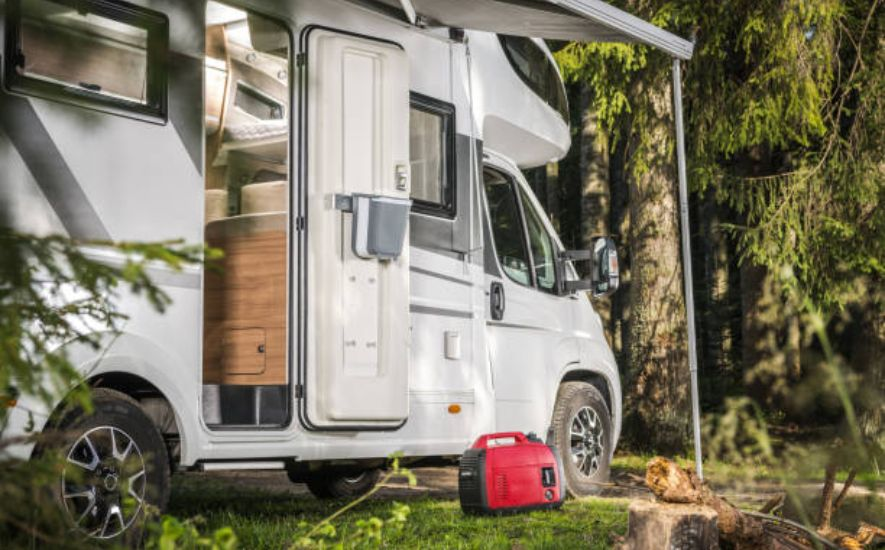
Picture this: you're out in the middle of nowhere, surrounded by nature, and far from the nearest power source. You need electricity to make your camping trip comfortable and enjoyable, so you pull out your trusty generator.
However, what happens if your generator isn't properly maintained? You could find yourself stranded without power, far from civilization. That's why it's crucial to understand the maintenance requirements of camping generators.
I. Regular Inspections
One of the most important aspects of maintaining a camping generator is conducting regular inspections. Before each use, inspecting the generator's air filter, spark plug, and fuel lines for any signs of damage or wear is important.
You should also ensure that the generator's cooling system is free of debris and that the unit is operating at the appropriate temperature. Additionally, you should check the generator's electrical connections and power cord for any signs of fraying or damage.
II. Oil Changes
Like any other engine, camping generators require regular oil changes to maintain their performance and longevity. You should change the oil in your camping generator every 50 to 100 hours of use or every season, whichever comes first.
Be sure to use the type of oil recommended by the manufacturer and to dispose of the old oil properly. Regular oil changes will help ensure that your generator operates efficiently without excessive wear and tear.
III. Fuel System Maintenance
Another crucial aspect of camping generator maintenance is taking care of the fuel system. Over time, fuel can degrade and cause problems with your generator's engine. It's important to use fresh fuel and to store it properly in a clean, dry container.
You should also add a fuel stabilizer to your generator's fuel tank if you plan on storing the unit for an extended period. Finally, you should regularly clean the generator's carburetor and fuel lines to prevent clogs and other issues.
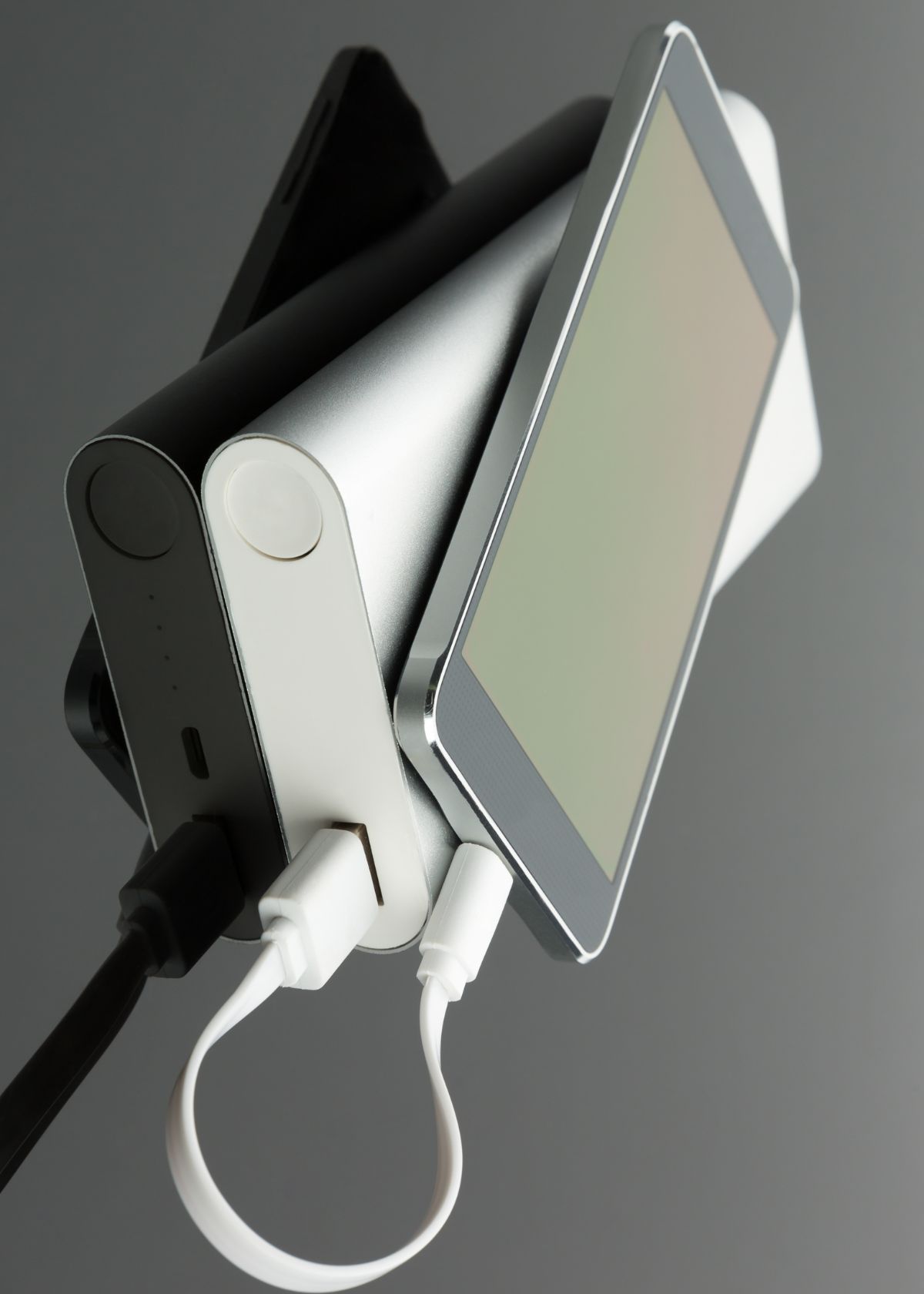
Tips for Troubleshooting Common Issues of Camping Generators
Camping generators can be a lifesaver when it comes to power essential appliances and electronics during outdoor trips.
However, they can sometimes run into issues that can dampen the camping experience. Fortunately, many common generator problems are fixable, and troubleshooting them is relatively straightforward.
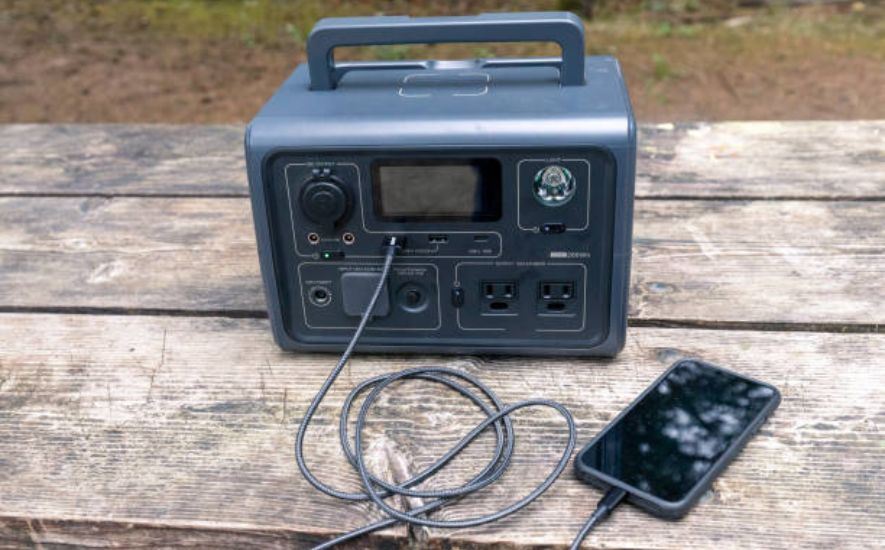
Insufficient Power Output
One of the most common issues with camping generators is insufficient power output. This can be caused by a range of factors, such as overloading, low fuel levels, or a faulty alternator. To troubleshoot this problem, check the fuel level and refill it if necessary.
If that doesn't work, make sure you're not overloading the generator with too many appliances. If the problem persists, it may be a sign of a faulty alternator or other internal components requiring professional assistance.
Difficult Starting
Another common issue with camping generators is that they can be challenging to start. This can be frustrating, especially when you need power immediately. Various factors, such as stale fuel, a dirty carburetor, or a faulty spark plug can cause difficult starting.
To troubleshoot this problem, first, ensure that there's enough fuel in the generator and that it's fresh. If that doesn't work, try cleaning the carburetor and spark plug. If the problem persists, it may require professional assistance.
Excessive Noise
Generators are notorious for being loud, but excessive noise can be a sign of a problem. This can be caused by a range of factors, such as loose components, worn-out bearings, or a dirty air filter.
First, check that all the components are securely tightened to troubleshoot this problem. If that doesn't work, try cleaning or replacing the air filter. If the problem persists, it may be a sign of a more significant issue that requires professional assistance.

Factors to Consider While Buying A Camping Generator
Camping is a popular activity that allows people to disconnect from the hustle and bustle of their everyday lives and reconnect with nature. Whether you prefer to camp in a tent, RV, or cabin, having access to electricity can make your trip more comfortable and enjoyable.
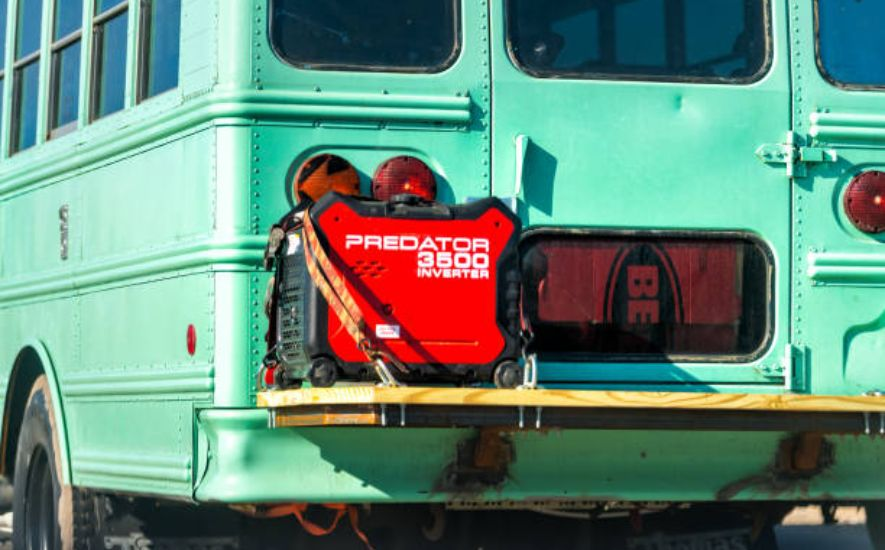
A camping generator is a convenient and reliable source of power that can provide you with the energy you need to run appliances, charge devices, and light up your campsite.
However, not all camping generators are created equal, and there are several factors you should consider before making a purchase.
Power output
The first factor to consider when buying a camping generator is its power output. The power output of a generator is measured in watts, and you'll want to choose a generator that can provide enough power to meet your needs.
Consider the appliances and devices you'll be using on your camping trips, such as lights, fans, heaters, refrigerators, and electronic devices.
Make a list of their power requirements in watts and add them up to determine the minimum wattage you'll need for your generator. Keep in mind that some appliances and devices may require more power to start up than they do to run, so factor in a little extra wattage to cover these surges.
Fuel type and consumption
The second factor to consider when buying a camping generator is its fuel type and consumption. Camping generators are typically powered by gasoline, propane, or diesel fuel. Each fuel type has its pros and cons, and you'll want to choose the one that best meets your needs.
Gasoline is widely available and easy to find but can be expensive and have a short shelf life. Propane is cleaner-burning and more efficient than gasoline but requires a separate tank and regulator. Diesel generators is efficient and has a longer shelf life than gasoline, but it can be more expensive and harder to find.
You'll also want to consider the fuel consumption of your generator, which will determine how long you can run it on a tank of fuel. Look for a generator with a fuel-efficient engine and a large fuel tank if you plan to use it for extended periods.
Portability and noise level
The third factor to consider when buying a camping generator is its portability and noise level. If you plan to move your generator around your campsite, you'll want to choose a lightweight and easy-to-carry model.
Look for a generator with wheels and a fold-down handle for easy transport. You'll also want to consider the noise level of your generator, as loud generators can be a nuisance to your neighbors and disrupt the peace and generator quiet of your campsite.
Look for a low decibel rating generator and a noise-reducing enclosure to minimize its impact on your surroundings.

Frequently Asked Questions (FAQs)
In this set of FAQs, we'll cover some common questions about maintaining your camping generator, including tips on oil changes, fuel storage, and more. With these tips, you can extend the life of your generator and ensure it's ready to power your next camping trip.
How do I protect my generator when camping?
Protecting your generator and generator's exhaust pipe while camping is important to ensure it operates smoothly and safely. Here are some tips to help you protect your generator properly while camping:
- Choose a safe location: Find a safe and secure location to place your generator, away from flammable materials, such as dry grass or leaves, and at a safe distance from your camping area to avoid any fumes or noise disturbances.
- Use a cover: A cover will help protect your generator from rain, dust, and other weather elements that may damage it. Be sure to choose a cover that is designed for your specific generator model to ensure a proper fit.
- Fuel and oil: Make sure your generator is fueled and oiled before you start it up, and carry extra fuel and oil in case you need to refill it.
- Secure the generator: Consider using a lock or chain to secure your generator to a tree or other sturdy object, especially if you plan to leave it unattended for a long period.
- Run it periodically: Running your generator periodically can help keep it in good working condition and prevent any issues caused by long periods of inactivity.
- Be mindful of noise levels: Generators can be noisy, so be considerate of your neighbors and try to limit the time you run it, especially during quiet hours.
- Follow the manufacturer's instructions: Always follow the manufacturer's instructions and safety guidelines when operating and maintaining your generator's exhaust pipes to ensure its longevity and safety.
Do portable generators need maintenance?
Yes, portable or RV generator require regular maintenance to ensure they are functioning properly and to prevent breakdowns.
Neglecting maintenance can lead to reduced performance, increased fuel consumption, and potentially dangerous malfunctions.
Here are some key maintenance tasks you should perform on your portable generator:
- Check the oil level regularly and change the oil according to the manufacturer's recommendations.
- Clean or replace the air filter as needed. A dirty air filter can reduce engine performance and cause damage over time.
- Inspect and tighten all bolts and screws, especially after the first few hours of use.
- Check the spark plug and replace it if necessary.
- Drain the fuel if you are storing the generator for an extended period of time.
- Inspect the fuel lines and replace any that are damaged or leaking.
- Test the generator regularly to ensure it is working correctly.
What maintenance does a generator need?
Generators are devices that are used to generate electricity. They require regular maintenance to ensure they are in good working order and are reliable when needed. Here are some common maintenance tasks that generators may require:
- Regular checks: Generators should be checked regularly for signs of wear and tear. This can include checking for leaks, loose connections, and signs of damage.
- Oil and filter changes: Like any engine, a generator needs regular oil and filter changes. This helps to keep the engine running smoothly and reduces the risk of breakdowns.
- Fuel system maintenance: The fuel system should be checked regularly for signs of wear and tear. Fuel filters should be changed as needed, and fuel tanks should be kept clean and free of debris.
- Battery maintenance: Generators with battery backups need to have their batteries checked regularly to ensure they are fully charged and in good working order.
- Coolant system maintenance: The coolant system should be checked regularly for signs of wear and tear. The coolant should be changed as needed to keep the engine running cool.
- Load testing: Generators should be load tested periodically to ensure they are capable of delivering the power needed in an emergency.
- Regular exercise: Generators should be run periodically to ensure they are in good working order. This also helps to prevent the build-up of moisture and other problems that can occur when a generator is not used for long periods.
How often should I run my generator when not in use?
If your generator is not being used regularly, running it for at least 20-30 minutes every month is recommended to keep it in good condition.
This will help prevent fuel from becoming stale and clogging up the carburetor, keep the engine lubricated, and prevent rust from developing on internal components.
It is also important to follow the manufacturer's recommendations for maintenance and storage, as these can vary depending on the type and model of the generator.
Conclusion
In conclusion, maintaining your camping generator is essential for ensuring it runs smoothly and efficiently during outdoor adventures.
By following the tips we've discussed, such as changing the oil regularly, keeping the generator clean, and storing it properly, you can extend the life of your generator and avoid unexpected breakdowns in the middle of your camping trip.
Remember, your generator is a valuable asset when camping, so take the time to care for it properly and enjoy the benefits of reliable power in the great outdoors. Happy camping!
